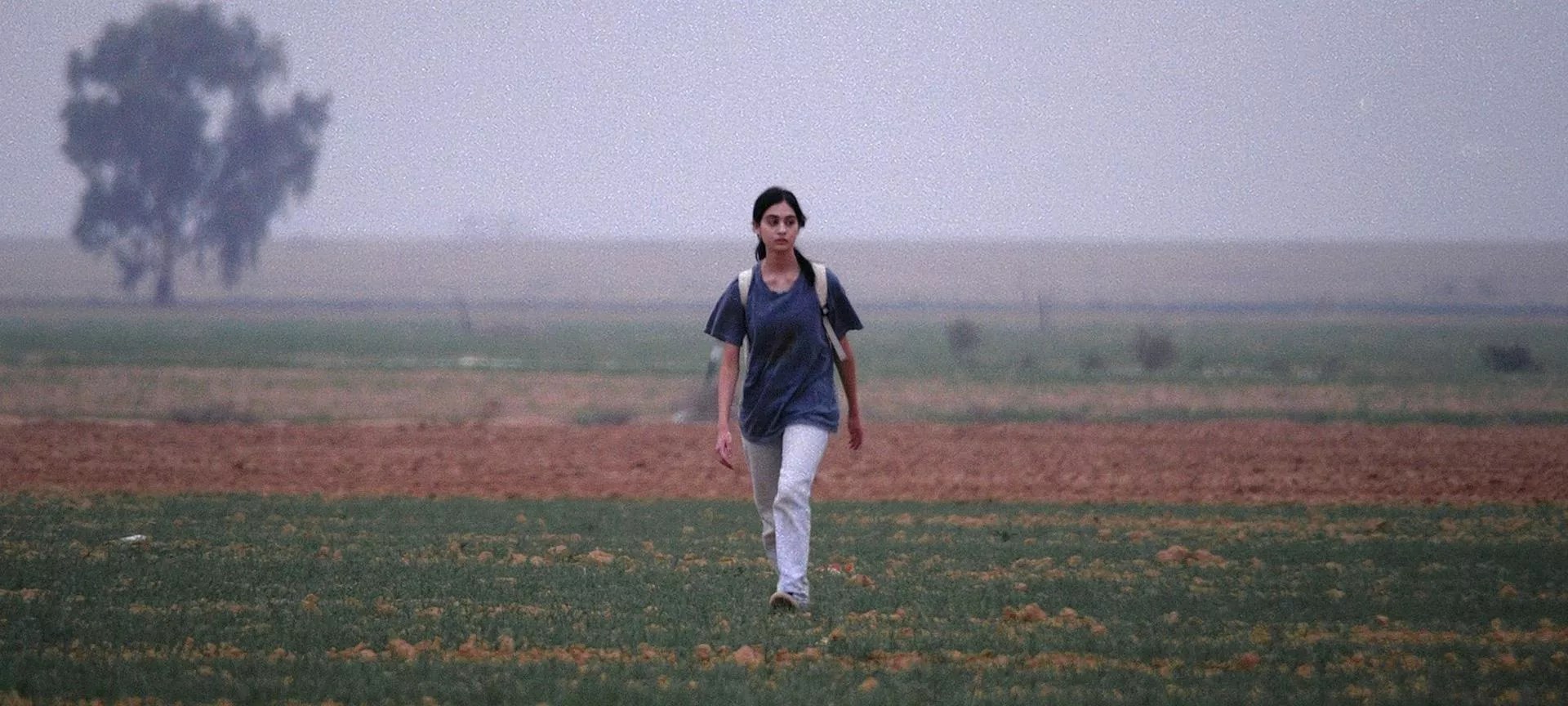
Courtesy of Menemsha Films

Audio By Carbonatix
The Miami Jewish Film Festival returns this month for its 28th edition, featuring more than 100 films from 25 countries. Running from January 9 through 23, the festival will present both in-person and virtual screenings, as it has in years past. Previously recognized as the “world’s largest Jewish film lineup,” organizers are billing this year’s edition as the “world’s largest Jewish and Israeli film lineup,” which feels like a subtle yet significant alteration.
The change comes more than a year after Hamas’ October 7 attacks on Israel and the subsequent Israeli strikes on Gaza, Lebanon, and Syria. In the shadow of these ongoing tragedies, a film festival can seem simultaneously minute and meaningful. No festival can solve the underlying issues, but its programming can pose difficult questions about the role of arts organizations: Are they political, or are they strictly cultural? Is cinema “truth 24 times per second,” as proposed by filmmaker Jean-Luc Godard? Or is film “24 lies per second at the service of truth,” as director Michael Haneke once posited? Is cinema a form of communication or a tool of propaganda? Can it connect or divide? Or both, at once?
The opening- and closing-night selections of the Miami Jewish Film Festival do not definitively answer these questions, but their tonal dissonance reveals a conflicted landscape. The festival commences with Soul of a Nation, which documents the aftermath of the October 7 attacks among Israelis. Filmmakers Jonathan and Claudine Jakubowicz will be in attendance at the screening. Another noteworthy screening, Of Dogs and Men, is billed as the first fiction narrative feature to depict the events of October 7. Dani Rosenberg’s film follows a young woman searching for her dog in the aftermath of the attack. It is described in the festival press material as a “humanistic… subtle antiwar film.”
In stark contrast, the festival closes with Matchmaking 2, a romantic “Romeo-and-Juliet tale” by director Erez Tadmor that has emerged as Israel’s biggest blockbuster success of the year.

Matchmaking 2 stands in contrast with some of the heavier subject matter at the film festival this year.
Courtesy of Israeli Films
A more thematic pairing at this year’s festival might be Air War and the documentary Women in Battle. The first, revolving around a young Israeli Air Force lieutenant and set against the events of the Six-Year War in 1967, has been dubbed “Israel’s answer to Top Gun.” Women in Battle, on the other hand, surveys the difficulties of women veterans living with post-traumatic stress disorder.
Both of the aforementioned titles are part of this year’s Israeli Cinema spotlight, including more than 30 film premieres. One of those films is Come Closer, this year’s Israeli submission for Best International Feature Film at the Academy Awards. The film follows a young woman coming to terms with the death of her young brother, a story inspired by the life of director Tom Nesher, who will be at the screening along with producer Anthony Bregman. Come Closer was nominated in 13 categories at this year’s Israeli Academy Awards (The Ophirs), winning Best Film, Director, Actress, and Editing.
One of the film’s competitors during this awards season, also showing at the Miami Jewish Film Festival, is The Milky Way, a dystopian science-fiction film in which breast milk becomes a commodity for affluent families. The film earned ten Ophir nominations this year.

Come Closer won big at the Israeli Academy Awards this year.
Courtesy of Greenwich Entertainment
Other award contenders and festival highlights include Semmelweis and Hungarian Dressmaker, the Oscar submissions from Hungary and Slovakia, respectively. Another selection, Tatami, is a film of international collaboration between Israeli director Guy Nattiv and Iranian filmmaker Zar Amir Ebrahimi, known for her award-winning performance in Holy Spider. This year also highlights Michel Hazanavicius’ Cannes title, The Most Precious of Cargoes, which is only the second animated film to compete at the prestigious festival after 2008’s Waltz with Bashir, which documented the 1982 Lebanon War and Sabra and Shatila massacre.
This year’s festival also offers a robust selection of documentaries. One intriguing standout is Riefenstahl, concerning the controversial filmmaker who mastered the cinematic form to create powerful propaganda for the Nazi regime. Florida-made documentaries October H8te and Milk & Honey, Blood and Tears both focus on the aftermath of October 7, with the former examining accusations of anti-Semitism on college campuses and the latter documenting the recovery of the Be’eri Kibbutz after the attack. Those two films, along with Miami Schmatta, a documentary about the immigrant experience within Miami’s garment industry, comprise the festival’s “Made in Florida” focus.
Another six-film showcase spotlights projects from Argentina, which famously became a refuge for Nazi war criminals after the Holocaust and has produced a recent slate of intriguing films exploring its traumatic history, such as 2022’s Oscar-nominated Argentina, 1985, and the enigmatic Azor. Among the Argentine films premiering at the festival are Mazel Tov, The Two Mariettes, Tuve el Corazón, and Borders Moved. The Exile of the Musicians, an Argentine documentary about Jewish musicians who fled from Nazism to Argentina, is also part of a Holocaust Education program.
In addition, the festival’s Next Wave Competition, judged by college students and young professionals, features the romantic comedy 31 Candles, the documentary The Ride Ahead, and the inspirational film Looking Up. The festival’s Community Engagement program also aims to “foster community connection and solidarity through inclusive community-driven events.” Among the titles selected this year are a 30th-anniversary screening of Martin Scorsese’s Vegas opus Casino and the 40th anniversary of the beloved adventure film The Goonies. The series will also include a screening of the recently rediscovered and restored silent film, The City Without Jews. The film will be accompanied by a live score performed by musicians Donald Sosin and Alicia Svigals.
Some of the films at this year’s festival will be difficult to watch, while others attempt to offer a respite from reality. The lineup, like current events, might spark heated but necessary conversations. To see the complete list of films screening this year, visit miamijewishfilmfestival.org/films/2025.
Miami Jewish Film Festival. Thursday, January 9, through Thursday, January 23, at various locations; miamijewishfilmfestival.org.